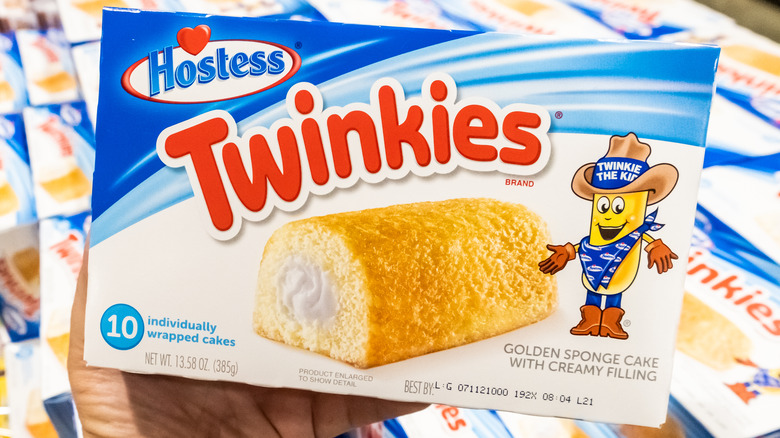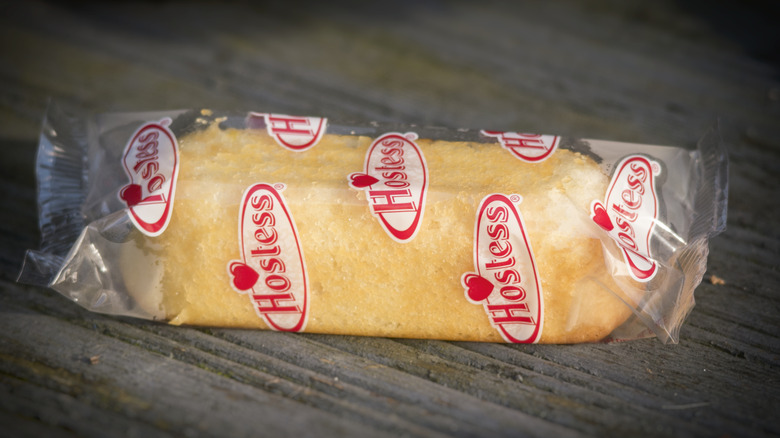What You Didn't Know About The Twinkies Law
When you bite into a Hostess Twinkie, you're getting much more than a thick finger of golden sponge cake filled with a cellulose-gum-enhanced creamy non-dairy filling (via Discover Magazine). You're also helping yourself to a bite of Americana. Conceived of in 1930, according to The New York Times, Twinkies have been a snack cake of choice for both kids and adults ever since, with the exception of a brief interlude from 2012 to 2013 when financial woes led Hostess to declare bankruptcy and cease Twinkie production — temporarily, as it turned out (via The Washington Post). But the Twinkie's popularity as a snack cake has also placed it into a variety of pivotal moments in American history, not unlike Forrest Gump – except that, unlike Forrest Gump, Twinkies have tended to make their cameos in some of America's less celebrated historical tableaux.
Perhaps the best-known example dates back to 1979. Dan White killed San Francisco Mayor George Moscone and Harvey Milk of the city's Board of Supervisors. White was convicted of manslaughter, rather than intentional murder, thanks to what has been known as the "Twinkie Defense," which allowed White's defense attorneys to have him absolved of capital-level criminal responsibility due to an addiction to junk food (including Twinkies), according to The New York Times.
Less well-known is the historical moment when Twinkies played a pivotal role in political campaign law reform. Here's what you didn't know about the so-called "Twinkies Law."
Twinkies were pivotal in a piece of campaign finance law reform
In 1985, George L. Belair ran for City Council in Minneapolis, Minnesota. Although his campaign proved unsuccessful, it was memorable to some locals in that it appears that Belair gave out Twinkies and other snacks to senior citizens as a way of influencing their votes. In May 1986, the election's winner, incumbent Walter Dziedzic, filed a complaint against Belair, alleging Belair's Twinkie giveaway had violated the Fair Campaign Practices Act, which The New York Times explains "prohibits candidates from providing any meat, drink or other entertainment or provisions."
Belaire, who was indicted by a grand jury but who eventually walked free, was famously quoted as having said, ”I had no intention of bribing anybody with Twinkies and Ho Ho's and a cup of coffee." Accordingly, when Minnesota later passed a law aimed at campaign finance reform, it became known as the "Twinkie Law." No word on why Hostess Ho Hos were left out of the legislative nickname, however.

